by Karl Widerquist | Aug 8, 2018 | Opinion, The Indepentarian
This essay was originally published on Basic Income News in June 2014.
Marshall Brain is a science writer (both fiction and non-), futurist, founder of the website How Stuff Works, and a long-time advocate of basic income. His book, Manna: Two Visions of Humanity’s Future, makes a case for basic income—and for a post-work society altogether—through the vehicle of science fiction.
The novel is essentially a thought experiment, working through two possible ways in which society might react when technology becomes so sophisticated that machines replace virtually all human labor. In the dystopian part of the story, America essentially warehouses its excess human labor in humane, but highly restricted and regimented residential community. In the later part of the story, the main character makes his way to Australia where the resources that make the machines run are jointly owned, and people do not have to work if they do not want to.

Marshall Brain via cyberpunkreview
The story moves quickly beyond basic income to a society that has no more need of paid labor. In Manna’s vision, there is such little need for human effort that people are free to pursue whatever projects they wish, some of which is things we would call “work” but not “paid labor.”
No doubt not all readers will find all aspects of Brain’s utopian vision to be truly utopian. His characters willingly concede a great deal of power over their lives and their own bodies to a centralized, impersonal computer system. They do it for security, but the fear that it will be misused will hit some readers even if it is ignored in the book.
The most important part of the book for BIG supporters is the warning in the dystopian portion of the book. America deals with less need for labor by squeezing wages and then eventually warehousing workers. Brain’s nonfiction work has argued that the rate of increase in computer and robotics technology makes the level of technology discussed in this book a realistic possibility—perhaps sooner than most of us think.
In any case, robotics technology is already here. It’s replacing human effort on a daily basis. It’s affecting our labor market, and those effects will increase every year from now on. Whether or not it will eventually replace all labor, we have to think about how to react to the labor it is now replacing on a daily basis. If we no longer need everyone to work, then BIG has to be part of the solution.
-Karl Widerquist, Cru Coffee House, Beaufort, North Carolina
Marshall Brain, Manna: Two Visions of Humanity’s Future. BYG Publishing, Inc. 2012.
Amazon page: https://www.amazon.com/Manna-Two-Visions-Humanitys-Future-ebook/dp/B007HQH67U.
Author’s website for the book: https://marshallbrain.com/manna1.htm
by Karl Widerquist | Aug 1, 2018 | Opinion, The Indepentarian
This essay was originally published on Basic Income News in August 2014.

The right-libertarian journal, Cato Unbound, has published a 4-party debate on Basic Income Guarantee (BIG) this month. Matt Zwolinski started it off with a second-best or pragmatic argument for BIG. He doesn’t say outright that BIG is better than many right-libertarians most favored policy of eliminating of all redistribution of property, but he argues that BIG is far superior to the complex and inefficient system that characterizes the current welfare system.
Manzi’s response stems from standard for the property-rights-with-no-exceptions version of libertarianism. In a nutshell, BIG would probably reduce how much propertyless people work for people with property; therefore, necessarily, it is bad. He dismisses Zwolinki’s argument that work disincentives can be a good thing by labeling it “subjective” and “value-laden,” without noting that a subjective and value-laden argument can only be countered by another subjective and value-laden argument, which he does not offer. He just assumes any and all work disincentives are bad. So, he doesn’t actually lay a glove on Zwolinski’s argument.
The closest he comes to explain the values that led him to the belief that all work disincentives are bad is to say that BIG has always been unpopular in the United States. Yet, to say something is unpopular is not say whether it is a good or bad thing. It doesn’t say whether we should try to change people’s minds about it. At any time in American history up until five or maybe ten years ago, he could have made the same argument against same-sex marriage. Now it’s popular; thanks to people worked hard to change other people’s minds. Is BIG or anything else worthy of a similar effort? Manzi implies that nothing that is currently unpopular is ever worth the effort to change people’s minds.
Manzi mentions my article, “A Failure to Communicate: What (If Anything) Can we Learn From the Negative Income Tax Experiments,” but doesn’t actually engage with its arguments about work disincentives. One argument is that any decline in work effort would—by standard theory—cause an increase in wages partly counteracting the decline in work effort and further increasing the incomes of the working poor—presumably the people a BIG is supposed to help.
Another argument in that article is that the “decline” in work effort was only relative—the experimental group vs. control group. But the experiments also found whether people were in the experimental or control group was not the primary causal factor determining whether they worked or not. The macroeconomic health of the economy was more important in determining how much a person worked than whether or not they received a BIG. Therefore, the experiments indicated that if you have a strong macroeconomy, you can have both BIG andhigh employment. People who received a negative income tax took more time to find the right job, but in all the experiments, if good jobs were available, people took them. If you want propertyless people to work for the owners of property whether or not jobs pay decent wages or provide good working conditions, then the absence of BIG or anything like it is what you should favor. If you want all jobs to be good jobs, BIG is the policy to favor.
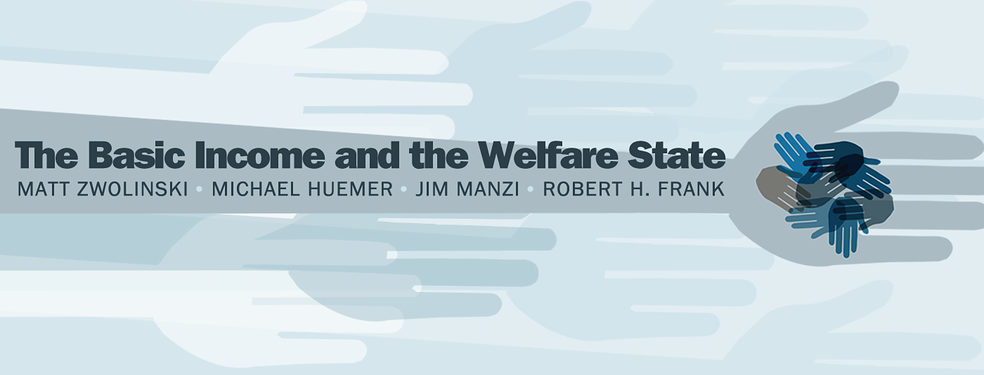
Cato Unbound
Another of the main arguments in my article was that, without foundation, many people responded to the evidence of a relative decline in work effort by making a subjective and value-laden assumption that all reductions in work effort are necessarily a bad thing. Manzi makes that very assumption and does not explain—much less defend—the subjecctive foundations underlying his assumption.
It’s what he leaves out, what he doesn’t call attention to, that is the real problem in Manzi’s article. Typical of some brands of right-libertarianism, it’s from a tradition of newspeak. He’s for slavery and he calls it freedom. It’s perhaps unfair to hang all of the rest of what I have to say on Manzi, but it is a common position running throughout a great deal of right-libertarian literature from Nozick and Rothbard and many, many others. Manzi’s essay, by the absence of its foundations, is a good example of how successfully this argument has become taken for granted—not just among right-libertarians but in mainstream political dialogue.
In the rights-based libertarian tradition, a situation in which one group of people has no other option but to work for another group of people is called “freedom” as long as that other group of people are called “property owners” and the working class is propertyless. I call it slavery, but to right-libertarians the opposite is slavery. Any redistribution to relieve people from forced work is supposedly reduces freedom; it’s even “on par with forced labor,” in Nozick’s words. If property owners give jobs or charity to the propertyless, that’s “voluntary” and consistent with freedom, but if the government taxes and redistributes property that’s “force,” “coercion,” and “interference” which supposedly violates negative freedom.
How did these propertyless people get into the position in which they have to work for the propertied? Over a long history, property owners use the force of the legal system to force, coerce, or interfere with other people, establishing “property rights” without the consent of or compensation for the people they thereby force into a state of propertyless. Before property rights, all were free from interference to use the resources of the Earth as they wished; under the type of property rights we have today and under the ideals envisioned by right-libertarians, “property owners” are free to interfere with any use the propertyless might make of the Earth’s resources. When everything is owned by someone else, the propertyless lose so much liberty that they’re unfree to work for themselves. They’re effectively born in debt, owning their labor to the to at least one member of the group that owns property. They face interference with anything in the world they might do for themselves unless and until they accept a subordinate position to a property owner? Doesn’t that make them unfree in the most negative sense of the term?
Right-libertarians usually get around this question by definitional fiat. The interference the rich do to the poor, when they say “We own the Earth and you don’t,” simply doesn’t count. It’s not interference because it doesn’t violate your rights. You have no right to the land; therefore, you have no right to be free from laboring for the people who do, and so we don’t even call it a loss freedom when use the force of the legal system to maintain that situation. The poor are always born in debt, every generation owing their labor to the propertied group, but that doesn’t make them “unfree” because they have no right to be free from being born into debt. I hope this makes my allegation of right-libertarian “newspeak” clear.
Of course, right-libertarians tell us that they defend property rights because they believe in freedom. Now we see that they’re simply defining freedom as the defense of the property rights system they want to see. This is why I think it is fair to use to term tautological libertarianism to describe versions of it that simply define freedom as the freedom do what you have the right to do. They argue we must have libertarian property rights so we can be free, but libertarian freedom turns out to be defined as nothing but the exercise of property rights so defined. Or they argue that we must define property rights this way so that people can be free. And around and around the logical circle we go. Not all libertarians (or even all right-libertarians) take the tautological shortcut, but far too many of them do. A circular argument can appear very powerful if you don’t reveal the whole circle at once. One paper argues this: we must have the definition of property rights because freedom is important. Another paper argues this: we must have this definition of freedom because property rights are important. If you show only one argument at a time, it appears powerful. You put both arguments together, and you have no argument at all. The less of the logic you see, the more powerful the argument appears to be.
You would need a powerful argument to explain why interfering with the propertyless in such a way as to put them effectively in debt to the upper class simply doesn’t count as a violation of freedom. And such an argument could only be subjective and value laden. But if the treatment of property ownership as synonymous with freedom is pervasive enough, you never have to make that argument. You can take it for granted.
Manzi expects his readers to take that kind of argument—or some other subjective and value laden argument—for granted when he assumes that any reduction in the number of hours the propertyless are forced to work for the propertied group is necessarily a bad thing. That’s slavery caused by the application of force, interfering with negative freedom of individuals to do things for themselves. He can call it freedom if he wants, but it’s still slavery.
-Karl Widerquist, Virginia Beach, VA (revised Roanoke, VA), August, 2014
by Karl Widerquist | Jul 18, 2018 | Opinion, The Indepentarian
This piece was originally published in Cake: The Nonmusic Music Magazine in 1996. It is, I think, the first article I published anywhere. I reproduced it here, because the original piece is not online.
Someone asked me to write about sports, but I’m like I don’t play any sports, I ride a bike, but that’s not a sport, that’s transportation. A sport is a physical activity that you do for fun or for a challenge. I don’t think that my bike riding qualities because I use my bike almost exclusively for transportation, but there’s sport to it.
The city is just the right size to ride a bike. Almost everywhere I go is less than 20 minutes by bike, twice as fast as by car and a lot quicker than public transportation. The city would be the perfect place to ride a bike, except it sucks. But, it only sucks because all those people who don’t realize that it’s the perfect place to ride a bike and insist on driving cars. Cars are too big and dirty for the city. Parking is impossible, they create traffic jams, and make the air really disgusting. Half the city has been plowed under to make extrawide streets and free parking spaces for cars, talk about government handouts. Still there’s not enough room for all the cars, but they keep driving in. At least they make biking sporting. My friends think it’s too scary to ride a bike in the city. But, to me, “scary” is walking home late at night risking violent death; risking accidental death trying to squeeze between two buses, that’s “sporting.”
Taxis are the worst, the natural enemy of the bike. They’ll honk at you for the crime of being in front of them. Then they’ll pass you and stop right in front of you with no apparent sense of irony. You can try is to get way over to the side of the road — typical rookie mistake. This saves you from getting honked at by people in a hurry to speed up to the red light in front of you, but it makes you vulnerable to all sorts of mishaps you can’t get in the center of the road. You can get driven off the street by cars making right turns, or buses and taxis stopping to pick up people, and, sooner or later, you’re going to get doored. One night a guy opened a taxi door right in front of me and clipped my handle bars. “Are you all right?” Next thing I knew I was lying face up on the pavement. The driver and the passenger both got out and stood over me, the passenger said, “Are you OK?” I was dazed and bruised and not quite cognizant.
“HOW ARE YOU?”
“I’m fine thanks.”
“He’s OK,” and they sped away.

Karl widerquist in the mid-90s
Pedestrians can make for sport. As the light turns they leave from both sides of the street. Do you try to get through the center before the two groups come together or do you go behind a group on one side after the last one leaves the corner. Pedestrians and bikers get along OK. You stay out of their way; they stay out of your way: no problem. Except, for the deer people. Most people know that if their crossing the street and they see a bike heading strait for where they’re standing right now, that if they keep going they’ll be well away before the bike gets there. Not the deer people. They walk right out into the street, and stop right in your path. You wouldn’t think a primate could be that stupid. But, dodging them is a sport.
This is not to say that there are not a lot o’bad bicyclists out there, there are. There are enough that I wouldn’t blame pedestrians for being scared. There was this guy who used to ride his bike in full football padding, helmet, face mask, shoulder pads, the whole bit, outside his close. I’d be stopped at a red-light, waiting for a break in in traffic to go. He’d zoom past me into a break I didn’t see. I don’t see him around lately. I wonder if he’s still alive.
Red lights, there’s a sport. To bicyclists every traffic law is a suggestion. I mean I try to stay out of everybody’s way, but if nobody’s comin’, I’m goin’, full speed. What’re they gon’a do, take your license away? This is safe, as long as you look, there is no risk to it at all, but it’ll kill me eventually. Like that scene in “Slaughterhouse Five” where the guy says, “I’ve seen my death, I’ve been there many times…” In Manhattan almost every street is one way. Parents teach their children to, “Look one way before crossing the street.” Sooner or later I’ll be looking left when the cross traffic is coming from the right and I’ll be on the grill of a garbage truck.
Simply standing at red lights is its own sport, you try to balance yourself while you wait for a break. A bike can’t come to a complete stop and still stay balanced, the trick is to inch forward, pull yourself back, inch forward… You could stop and put your foot on the ground. There is no practical reason for balancing, it’s just a sport.
The most challenging sport in city biking is keeping it. Bike theft is incredible in the city, I’ve lost count of how many bike’s I’ve lost. Legend has it that thieves use liquid nitrogen to make locks brittle and easy to break. But, theft can be beaten. You got’a have the worst bike and the best lock. First I tried one of those U-locks that “guarantees” against theft. Quite the bluff, actually, they’re one of the easiest locks to break, you can’t make a claim unless the bike was registered, you have a police report, a receipt for the lock, a receipt for the bike, a recent assessment of the bike’s value, you have to recover the broken lock, and the guarantee is void in Manhattan away. I wonder if they’ve ever paid on one of those guarantees? Now I’ve got a five foot, double reinforced metal square link chain that weighs more and costs more than my twenty year old girls ten speed, purple frame, with florescent orange spray painted stripes. That heavy chain makes it a lot more difficult to get up those hills, but it’s worth it. Theft is not a sport, it’s just aggravation.
One big drawback of using your bike for transportation and sport is that you arrive everywhere right after your workout. You change close a lot. One summer I took a job as a bike messenger. The biking was great, the actual delivering the packages wasn’t so great. That summer there was this huge heat wave. One day it was 100 degrees with 100% humidity, and I had to take a package to the Chanel Perfume company on the 30th Floor of a Fifth Avenue high-rise. It looked like one of those banks that Dickens described in a Tale of Two cities, it had all this old looking wood everywhere, everything was extra-fancy. There was this giant bottle of Chanel No. 5 encased in glass. Of course, I’m dripping with sweat. I go up to the receptionist at a big oak desk she said, “I’m not signing for it, take it to receiving, on 31, one flight up.” I walk toward the Oak wood circular Staircase, “No, you can’t use the stairs, go back into the lobby and take the elevator.”
When I’m on my way back down, the elevator stops again on the 30th floor, a model gets in. She’s obviously just been shooting an ad. She’s wearing a long flowing black shoulder showing dress. I’m wearing shorts and a short sleeved shirt so soaked in sweat that you can’t tell that I haven’t just been swimming in the ocean with all my close on. I’ve accessorized with a clipboard and a messengers bag that’s held together with duct tape. She leans against the back wall and puts all her weight on her left leg as her right leg comes out of this enormous heretofore unseen slit in her dress. There are mirrors on all the walls and the door and the ceiling, so that wherever you look you see the beauty and swamp thing. She has long flowing light brown hair. I have sweat is flowing out of my crooked bicycle helmet. She shifts her weight. Her right leg disappears and her left leg emerges from another unseen slit. So I straightened my helmet.
-Karl Widerquist, New York, NY 1996






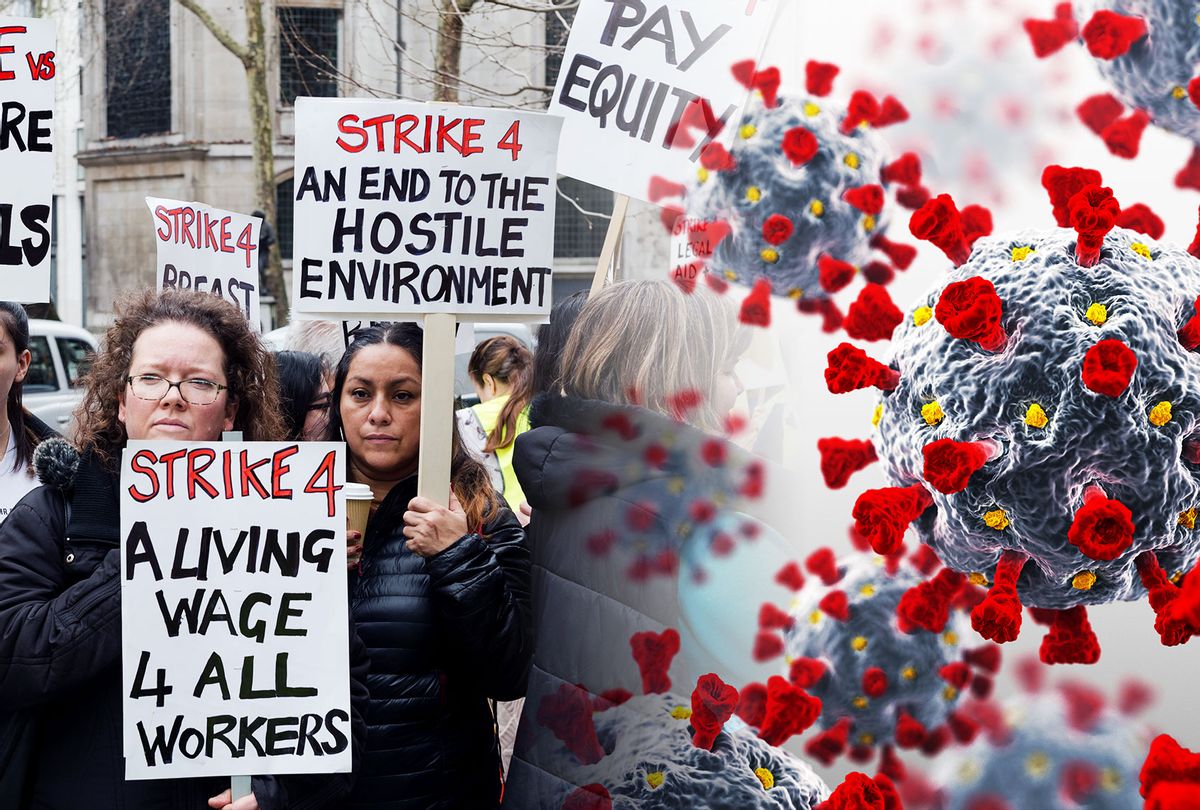





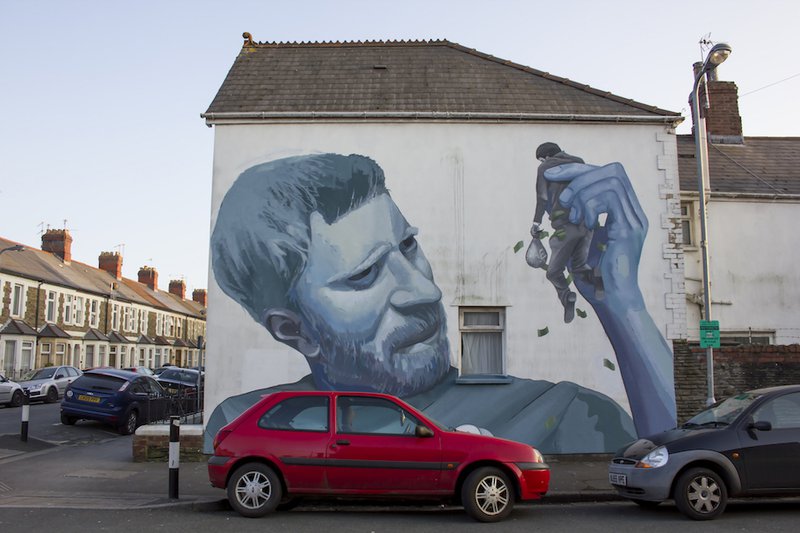
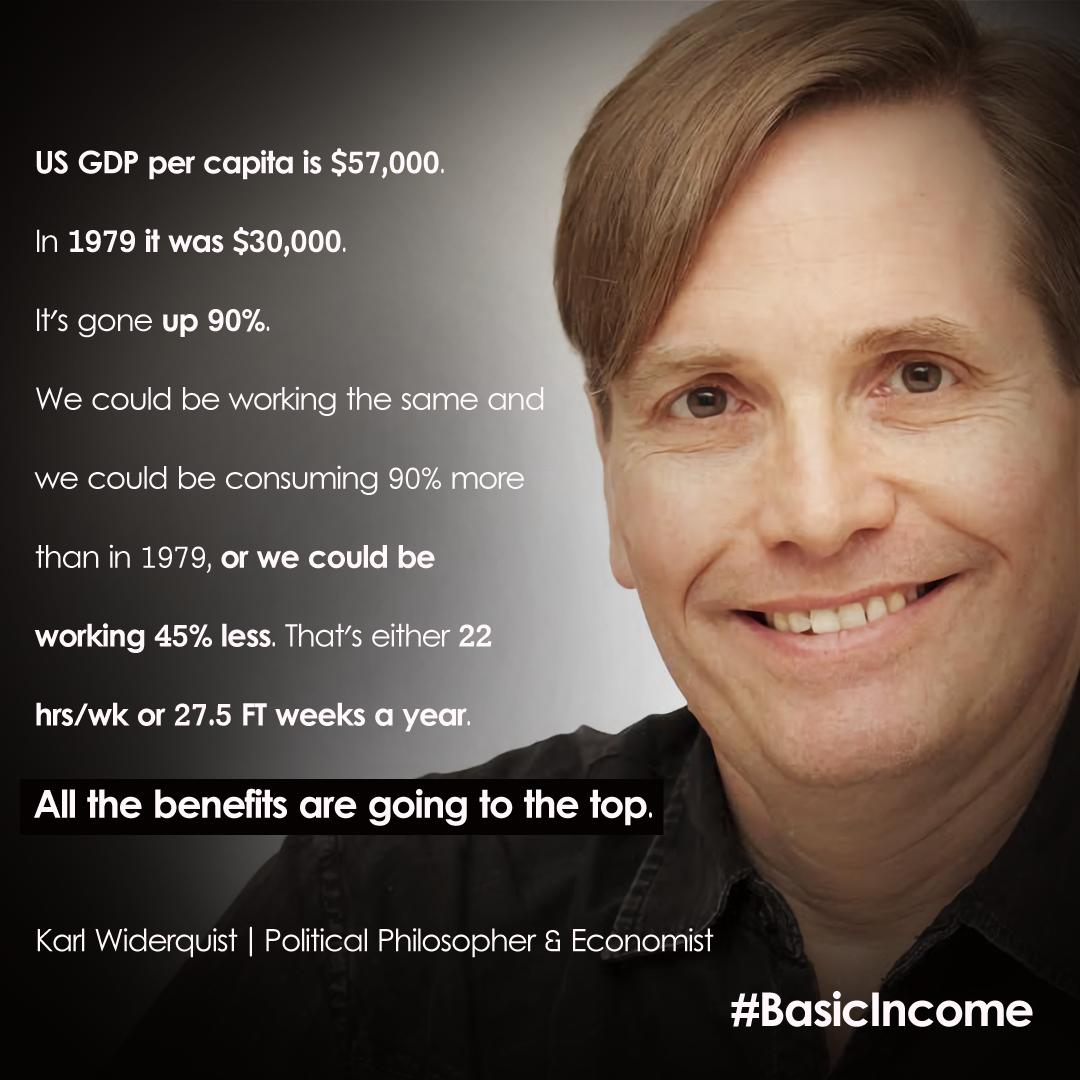


 CIRS,
CIRS, 
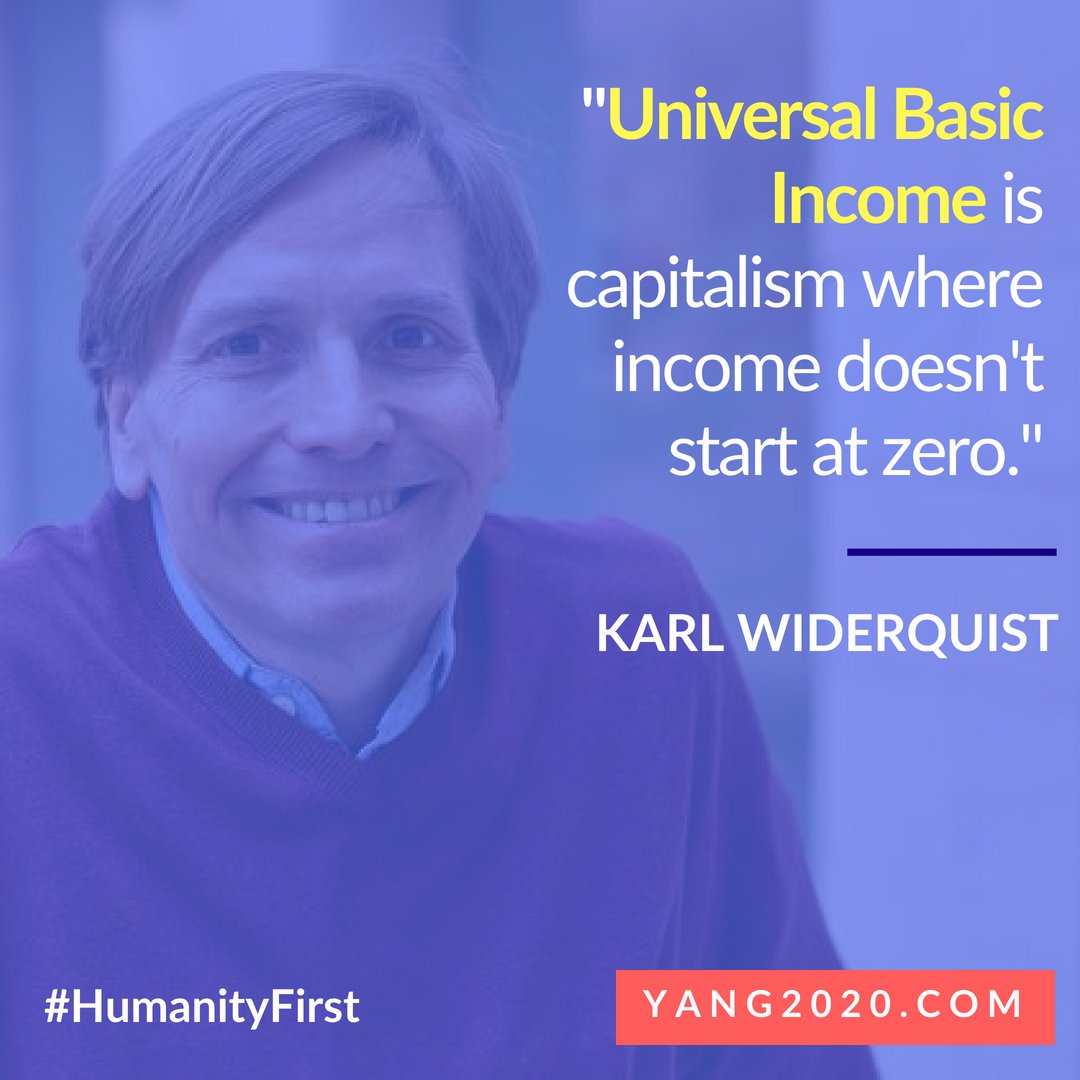



 “
“

